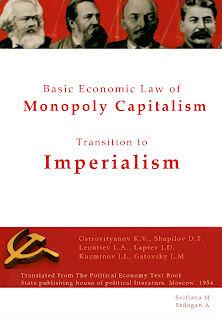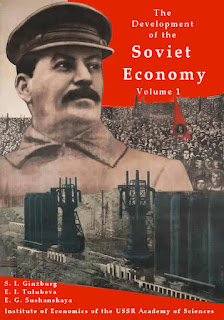BOLSHEVIKS AND MENSHEVIKS IN THE PERIOD OF THE STOLYPIN REACTION 1908 - 1912
3. BOLSHEVIKS AND MENSHEVIKS IN THE PERIOD OF THE STOLYPIN REACTION.
STRUGGLE OF THE BOLSHEVIKS AGAINST THE LIQUIDATORS AND OTZOVISTS
During the years of reaction, the work in the Party organizations was far more difficult than during the preceding period of development of the revolution. The Party membership had sharply declined. Many of the petty-bourgeois fellow-travelers of the Party, especially the intellectuals, deserted its ranks from fear of persecution by the tsarist government.
Lenin pointed out that at such moments revolutionary parties should perfect their knowledge. During the period of rise of the revolution they learned how to advance; during the period of reaction they should learn how to retreat properly, how to go underground, how to preserve and strengthen the illegal party, how to make use of legal opportunities, of all legally existing, especially mass, organizations in order to strengthen their connections with the masses.
The Mensheviks retreated in panic, not believing that a new rise in the tide of revolution was possible; they disgracefully renounced the revolutionary demands of the program and the revolutionary slogans of the Party; they wanted to liquidate, to abolish, the revolutionary illegal party of the proletariat. For this reason, Mensheviks of this type came to be known as Liquidators.
Unlike the Mensheviks, the Bolsheviks were certain that within the next few years there would be a rise in the tide of revolution, and held that it was the duty of the Party to prepare the masses for this new rise. The fundamental problems of the revolution had not been solved. The peasants had not obtained the landlords' land, the workers had not obtained the 8-hour day, the tsarist autocracy, so detested by the people, had not been overthrown, and it had again suppressed the meagre political liberties which the people had wrung from it in 1905. Thus the causes which had given rise to the Revolution of 1905 still remained in force. That is why the Bolsheviks were certain that there would be a new rise of the revolutionary movement, prepared for it and mustered the forces of the working class.
The Bolsheviks derived their certainty that a new rise in the tide of the revolution was inevitable also from the fact that the Revolution of 1905 had taught the working class to fight for its rights in mass revolutionary struggle. During the period of reaction, when the capitalists took the offensive, the workers could not forget these lessons of 1905. Lenin quoted letters from workers in which they told how factory owners were again oppressing and humiliating them, and in which they said: "Wait, another 1905 will come!"
The fundamental political aim of the Bolsheviks remained what it had been in i905, namely, to overthrow tsardom, to carry the bourgeois-democratic revolution to its conclusion and to proceed to the Socialist revolution. Never for a moment did the Bolsheviks forget this aim, and they continued to put before the masses the principal revolutionary slogans —a democratic republic, the confiscation of the landed estates, and an 8-hour day.
But the tactics of the Party could not remain what they had been during the rising tide of the revolution in 1905. For example, it would have been wrong in the immediate future to call the masses to a general political strike or to an armed uprising, for the revolutionary movement was on the decline, the working class was in a state of extreme fatigue, and the position of the reactionary classes had been strengthened considerably. The Party had to reckon with the new situation. Offensive tactics had to be replaced by defensive tactics, the tactics of mustering forces, the tactics of withdrawing the cadres underground and of carrying on the work of the Party from underground, the tactics of combining illegal work with work in the legal working-class organizations.
And the Bolsheviks proved able to accomplish this.
"We knew how to work during the long years preceding the revolution. Not for nothing do they say that we are as firm as a rock. The Social-Democrats have formed a proletarian party which will not lose heart at the failure of the first armed onslaught, will not lose its head, and will not be carried away by adventures," wrote Lenin. (Lenin, Collected Works, Russ. ed., Vol. XII, p. 126.)
The Bolsheviks strove to preserve and strengthen the illegal Party organizations. But at the same time they deemed it essential to utilize every legal opportunity, every legal opening to maintain and preserve connections with the masses and thus strengthen the Party.
"This was a period when our Party turned from the open revolutionary struggle against tsardom to roundabout methods of struggle, to the utilization of each and every legal opportunity—from mutual aid societies to the Duma platform. This was a period of retreat after we had been defeated in the Revolution of i905. This turn made it incumbent upon us to master new methods of struggle, in order to muster our forces and resume the open revolutionary struggle against tsardom." (J. Stalin, Verbatim Report of the Fifteenth Party Congress, Russ. ed., pp. 366-67, i935.)
The surviving legal organizations served as a sort of screen for the underground organizations of the Party and as a means of maintaining connections with the masses. In order to preserve their connections with the masses, the Bolsheviks made use of the trade unions and other legally existing public organizations, such as sick benefit societies, workers' cooperative societies, clubs, educational societies and People's Houses. The Bolsheviks made use of the platform of the State Duma to expose the policy of the tsarist government, to expose the Constitutional-Democrats, and to win the support of the peasants for the proletariat. The preservation of the illegal Party organization, and the direction of all other forms of political work through this organization, enabled the Party to pursue a correct line and to muster forces in preparation for a new rise in the tide of revolution.
The Bolsheviks carried out their revolutionary line in a fight on two fronts, a fight against the two varieties of opportunism within the Party—against the Liquidators, who were open adversaries of the Party, and against what were known as the Otzovists, who were concealed foes of the Party.
The Bolsheviks, headed by Lenin, waged a relentless struggle against liquidationism from the very inception of this opportunist trend. Lenin pointed out that the Liquidators were agents of the liberal bourgeoisie within the Party.
In December 1908, the Fifth (All-Russian) Conference of the R.S.D.L.P. was held in Paris. On Lenin's motion, this conference condemned liquidationism, that is, the attempts of a certain section of the Party intellectuals (Mensheviks) "to liquidate the existing organization of the R.S.D.L.P. and to replace it at all costs, even at the price of down-right renunciation of the program, tactics and traditions of the Party, by an amorphous association functioning legally." (C.P.S.U.[B.] in Resolutions, Russ. ed., Part I, p. 128.)
The conference called upon all Party organizations to wage a resolute struggle against the attempts of the Liquidators.
But the Mensheviks did not abide by this decision of the conference and increasingly committed themselves to liquidationism, betrayal of the revolution, and collaboration with the Constitutional-Democrats. The Mensheviks were more and more openly renouncing the revolutionary program of the proletarian Party, the demands for a democratic republic, for an 8-hour day and for the confiscation of the landed estates. They wanted, at the price of renouncing the program and tactics of the Party, to obtain the consent of the tsarist government to the existence of an open, legal, supposedly "labour" party. They were prepared to make peace with and to adapt themselves to the Stolypin regime. That is why the Liquidators were also called the "Stolypin Labour Party."
Besides fighting the overt adversaries of the revolution, the Liquidators, who were headed by Dan, Axelrod, and Potressov, and assisted by Martov, Trotsky and other Mensheviks, the Bolsheviks also waged a relentless struggle against the covert Liquidators, the Otzovists, who camouflaged their opportunism by "Left" phraseology. Otzovists was the name given to certain former Bolsheviks who demanded the recall (otzyv means recall) of the workers' deputies from the State Duma and the discontinuation of work in legally existing organizations altogether.
In i908 a number of Bolsheviks demanded the recall of the Social-Democratic deputies from the State Duma. Hence, they were called Otzovists. The Otzovists formed their own group (Bogdanov, Luna-charsky, Alexinsky, Pokrovsky, Bubnov and others) which started a struggle against Lenin and Lenin's line. The Otzovists stubbornly refused to work in the trade unions and other legally existing societies. In doing so they did great injury to the workers' cause. The Otzovists were driving a wedge between the Party and the working class, tending to deprive the Party of its connections with the non-party masses; they wanted to seclude themselves within the underground organization, yet at the same time they placed it in jeopardy by denying it the opportunity of utilizing legal cover. The Otzovists did not understand that in the State Duma, and through the State Duma, the Bolsheviks could influence the peasantry, could expose the policy of the tsarist government and the policy of the Constitutional-Democrats, who were trying to gain the following of the peasantry by fraud. The Otzovists hampered the mustering of forces for a new advance of the revolution. The Otzovists were therefore "Liquidators inside-out": they endeavoured to destroy the possibility of utilizing the legally existing organizations and, in fact, renounced proletarian leadership of the broad non-party masses, renounced revolutionary work.
A conference of the enlarged editorial board of the Bolshevik newspaper Proletary, summoned in 1909 to discuss the conduct of the Otzovists, condemned them. The Bolsheviks announced that they had nothing in common with the Otzovists and expelled them from the Bolshevik organization.
Both the Liquidators and the Otzovists were nothing but petty-bourgeois fellow-travelers of the proletariat and its Party. When times were hard for the proletariat the true character of the Liquidators and Otzovists became revealed with particular clarity.






























.jpg)














